
The CEO of Kharg Petrochemical Company considered the assignment of utility pricing to the National Petrochemical Industries Company after several years as confirmation of the Ministry of Oil's special view of the private sector, saying: "This measure can increase investor confidence and pave the way for the development of new projects."

The development of the West Karun oil fields is being pursued as one of the main priorities of the 14th government, focusing on accelerating strategic plans; in the meantime, the Azadegan joint field, as the largest oil field in the country, has played a key role in increasing oil production and boosting exports by completing its development phases.
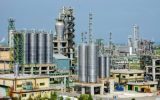
The Deputy Chairman of the Energy Commission of the Islamic Consultative Assembly considered the transfer of arbitration in pricing ancillary services to the National Petrochemical Industries Company as an effective solution for further developing this industry, and said: Iran has a suitable capacity for expanding complementary petrochemical industries, and if it moves towards balanced development, significant benefits can be achieved.

On February 17, the household, commercial, and small industrial sectors consumed 66 percent of the total natural gas delivered to the national grid.
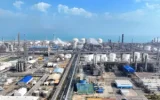
The member of the Board of Directors of the Energy Commission of the Islamic Consultative Assembly, emphasizing the prominent role of the petrochemical industry in the development, job creation, and foreign exchange earning of the country, said: "Undoubtedly, determining the duties and arbitrating the pricing of petrochemical ancillary services will help attract investment in this industry."
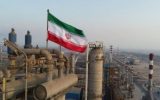
By creating new financial instruments, establishing a guarantee fund, and opening the doors of participation to the private sector, the Ministry of Oil of the 14th government has drawn up a comprehensive plan to direct liquidity to the heart of the energy industry; a narrative of the transformation of oil governance that links national wealth to national capital.
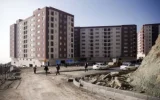
The first registration notice for the "Tehran Oil Residential Complex" project of the Ministry of Oil Employees Housing Cooperative has been published.
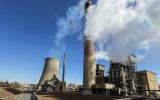
Forty million cubic meters of gas and 58 million liters of liquefied petroleum gas are delivered to power plants daily, and despite having 1.7 billion liters of fuel stored in tanks, the risk of winter power outages has decreased; however, the sustainability these conditions remains under evaluation.

Household, commercial, and industrial gas consumption on the seventh day of Bahman reached 672 million cubic meters, equivalent to 77 percent of the total gas injected into the national network.
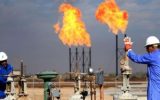
The Deputy Director of Operational Efficiency at the National Efficiency Organization of Iran, emphasizing the strategic role of the gas collection from flare stacks project in enhancing the efficiency of the country's energy supply chain, considered this project as one of the most important national projects and a driver efficiency.










